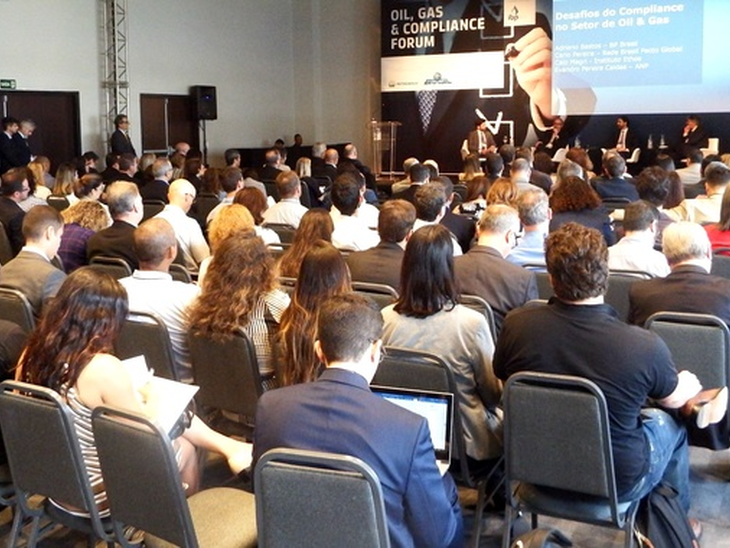
 Event
Event
T&B Petroleum/Press Office

IBP brought together experts in the oil and compliance for the Oil, Gas & Compliance Forum, on Wednesday (29/11), to discuss the importance of cooperation for the development of corporate integrity. At the opening of the event, Milton Costa Filho, general secretary of the IBP, highlighted the need for the theme to be incorporated into the daily culture of industry.
"Compliance will be one of the pillars of IBP in 2018, which stands out as an election year. Rio Oil & Gas next year, for example, will be held one week before the first round of elections, and we will have the opportunity to mark the position of the oil industry in relation to the most diverse topics, "said Costa Filho.
For Carlo Pereira, executive secretary of the UN Global Compact Brazil Network, this is the first time that both society and the public and private sectors have a common goal, which is Agenda 2030 of the Sustainable Development Goals (ODS). "The ODS is already a reality and the expectation of all is that there is a significant contribution to make. For this, it is necessary that the structure of the compliance agenda has a look outside the company and seeks to influence," Pereira said.
"The solution goes through the transparency + consequence formula. That is, while it is important to have more people looking at and monitoring integrity processes, it is also essential that there be accountability on the part of those who are responsible for errors," added Carlo.
Adriano Bastos, chairman of BP Brasil, the speaker of the first panel of the forum, stressed that everything starts with the individual - even if the theme is permanent in all meetings of the boards of companies, with goals. "Compliance is everything we do every day, starts safely and passes through social responsibility - it's not only about finances. The role of companies is to generate profits, but within the law," he said.
Main gaps
Commenting on the challenges of compliance in the industry, Caio Magri, president of the Ethos Institute, presented the demands that, in his view, need to be addressed more urgently by the industry. Are they:
- Regulation of the lobby in Brazil. "It is necessary to create rules of behavior and processes for the defense of own interests and sectors."
- Greater transparency of the final beneficiaries of the companies. "Whether it is to acknowledge the effort and participation or to hold individual responsibility for unlawfully obtained profits."
- Establish public-private relations anchored in integrity and transparency. "The role of the state is fundamental and Petrobras is strategic, so this challenge is fundamental."
- More transparent public procurement. "Mechanisms are needed to prevent the formation of illicit cartels and lobbies in public procurement."
For Magri, it is necessary a sectorial articulation that guides the risks and the necessary measures to overcome them in a collective and constructive way to be declared for the society. "There is a need for a set of commitments made publicly, that, from that moment on, all companies will behave in this way with regard to risks and measures," he explained.
Integrity for the whole chain
During the "Due Diligence and Good Practices in Third Party Risk Management" panel, Márcio Campanelli, Petrobras' executive compliance manager, presented the state's suppliers evaluation program, highlighting the relevance of the initiative for the entire sector. "It is not only a matter of valuing the company that adopts compliance practices, but also understanding how this company verifies these practices in its production chain. This generates a positive spiral and a competitive differential," explained Campanelli.
According to Nir Lander, Chief Compliance Officer of Odebrecht Oleo e Gás (OOG), the company also adopts supplier assessment and reviews its cadastral basis annually. For the executive, however, it is important to be aware of external factors such as reputational media alerts or the regulatory agency.
The forum - sponsored by Petrobras and Mattos Filho Advogados - also dealt with the individual criminal responsibility of company directors, bringing together lawyers Felipe Drumond, Drumond & Escocard Advogados, and Sérgio Riera, Rio de Janeiro State Attorney Humberto Dalla and the Federal Judge of the TRF-2 Marcello Granado.
Contact us